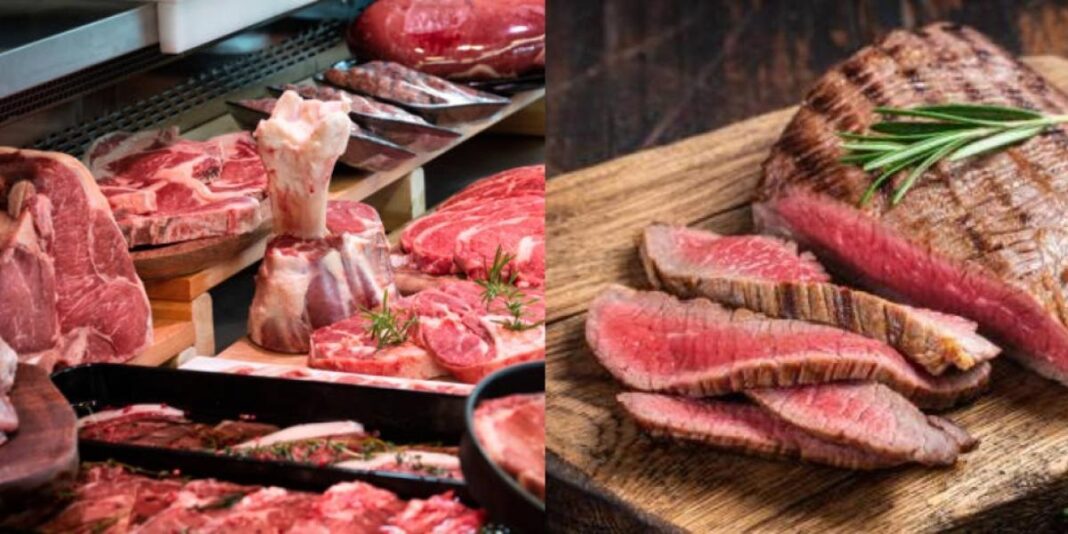Bogotá, Colombia – In a move that signals growing opportunities for Colombian exporters, three pork-processing establishments in Colombia have officially gained approval to export salted pork casings to Chile. This comes after a successful audit carried out by Chile’s Servicio Agrícola y Ganadero (SAG), which took place between May 5th and 17th, 2023. But beyond the headlines, what does this development really mean for businesses, and how can you take advantage of it? Let’s break it down in simple terms.
A Breakthrough for Colombia’s Pork Industry
For years, Colombia has been working toward expanding its agricultural and meat exports to global markets. While access for pork meat itself remains limited, this recent development—approval to export pork byproducts like salted pork casings—is a huge step forward. Why? Because it showcases that Colombian food safety and inspection standards are meeting the demands of one of the most stringent regulatory bodies in Latin America.
This breakthrough is significant not only because of Chile’s strict import requirements but also because it highlights how Colombian establishments can penetrate high-standard markets through specialized products.
“It’s an exciting time for Colombian businesses that are aligned with these evolving global standards,” says a spokesperson from Invima, Colombia’s National Food and Drug Surveillance Institute. “As markets like Chile open up, businesses that are ready to meet these standards stand to benefit the most.”
What This Means for Colombian Exporters
So, what does this all mean for you as a pork producer or exporter in Colombia?
- Access to New Markets: Chile is now open for pork byproducts like salted pork casings, which creates a new revenue stream for businesses in the meat processing industry.
- Proving Ground for Food Safety: If your establishment can pass the strict SAG audits, it signals that you can meet international food safety standards—opening the door to even more markets beyond Chile.
- Expanding Product Categories: This move isn’t just about pork. Chile already imports a wide range of Colombian products, including beef, dairy, fish products, and even collagen and gelatin. Adding salted pork casings to that list further strengthens the relationship between the two countries and broadens your export options.
How Can You Take Advantage of This Opportunity?
If you’re in the pork processing industry or considering entry, now is the time to act. But where should you focus?
- Meet Export Standards: First, ensure your facilities and processes meet the export standards enforced by SAG and Invima. It’s no small feat, but doing so opens doors not just to Chile, but to other markets with high regulatory thresholds.
- Leverage Trade Agreements: Chile is just one of 94 international markets that Colombia now has access to for agricultural products. Start looking into which other countries are potential growth markets for your products.
- Scale Strategically: As mentioned in Invima’s report, one of the three newly-approved Colombian establishments is authorized to export finished pork products to Chile, while the other two will supply raw materials. Depending on your capacity and infrastructure, you can position yourself either as a supplier or a producer of finished goods, expanding your business in a way that makes the most sense for your operations.
Why Chile? The Strategic Importance of This Market
Chile’s decision to import pork byproducts from Colombia isn’t just about trade—it’s about trust. Chile is known for its rigorous food safety standards, which makes it a highly attractive partner. By securing approval from SAG, Colombia has proven its commitment to international standards.
“This sets a precedent,” says an expert in international trade relations. “Countries with strict import requirements look at what other countries are doing. Gaining Chile’s approval opens up opportunities for Colombia in markets where food safety is a top priority.”
Moreover, Chile is a growing market for high-quality animal products, and Colombian pork products—now validated by SAG’s audit—are well-positioned to fill that demand.
Looking Ahead: What’s Next for Colombia’s Export Market?
As Colombia adds yet another product category to its list of exportable goods, the future looks promising. Already, Colombia exports beef, dairy, fish products, and unique items like mucosa porcina (used in pharmaceutical products) and quail eggs to Chile. Now, with salted pork casings approved, this shows the world that Colombian food products are on par with international standards.
For those looking to tap into this wave of new opportunities, the strategy is clear: focus on meeting international quality and safety standards. Those who can do this will be best positioned to seize not just Chile but other high-potential markets.
Practical Takeaways for Businesses
Let’s keep it simple: If you’re in the pork processing industry, there’s never been a better time to align your operations with international standards. The new opportunities in Chile are just the beginning.
- Audit Readiness: If you haven’t already, get familiar with SAG’s requirements. Being audit-ready will not only help you expand into Chile but also prepare you for entry into other stringent markets.
- Think Beyond Pork: If you’re already exporting beef or dairy to Chile, adding pork byproducts to your portfolio could increase your market share. Chile has a strong demand for high-quality animal products, and the pork industry is a natural next step.
- Start Small, Scale Fast: Don’t feel like you have to jump straight into exporting finished products. Start by supplying raw materials if that’s where your strengths lie, and scale from there.
The Final Word: Opportunities Await, But Preparation is Key
As Colombia’s access to international markets expands, especially with opportunities like those opening up in Chile, businesses must stay proactive. The path to exporting isn’t easy, but with the right strategy, it’s incredibly rewarding.
Remember: markets with strict regulatory frameworks may seem challenging at first, but they often provide the most sustainable, long-term opportunities. Now’s the time to align with global standards, prepare for audits, and start exporting high-quality Colombian products to the world.


